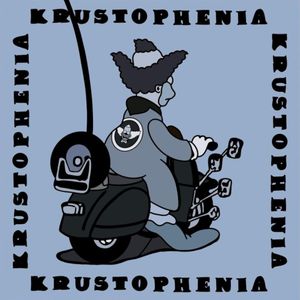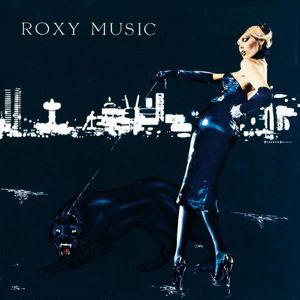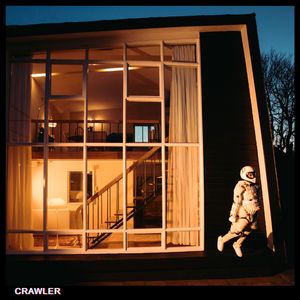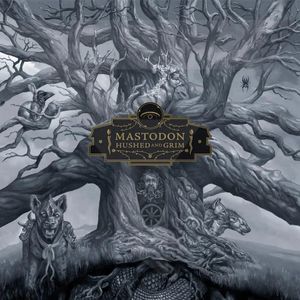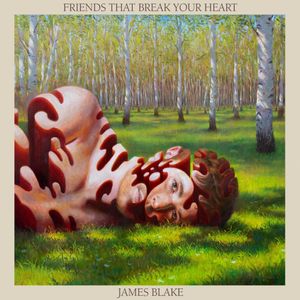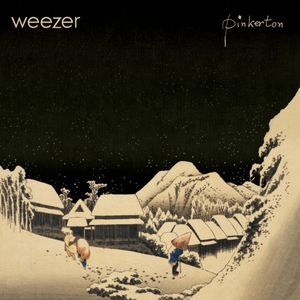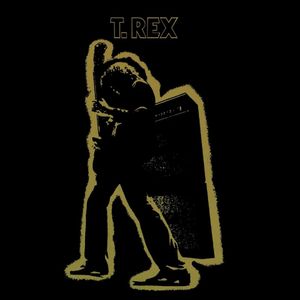Our 10 favourite tracks of 2017
10. “Humble.” // Kendrick Lamar

Marcus
“HUMBLE.”’s pre-album release worked as a simultaneous bookend to the themes and musical direction of To Pimp a Butterfly, and a spectacular act of misdirection. Following “The Heart Part IV”, The Young Pope comes back into the ring in a fighting mood, looking to throw weight behind his perfectly reasonable claim that he’s the greatest rapper alive. What we have in “HUMBLE.” is Kendrick at his most bombastic, egocentric, and playful. At the time the track admittedly fooled me into believing Kendrick had (at least partly) entered a new era of unbridled braggadocio, but in retrospect it feels like a deliberate ploy. After the introspective bars and tightly contained sonic textures of Pimp, the bouncing space, percussive piano notes, and near-violent self-reflexive affirmations are an alarming but organic change of pace that amply reminds us of Kendrick’s boundless range. It goes without saying that Kendrick’s flow and lyricism – original, natural, and tirelessly metamorphic – are impeccable, and the production’s blending of sharp synths, the aforementioned piano melody, and an unorthodox trap beat, is immaculate without feeling over-polished. In the context of the album “HUMBLE.” can feel like a dark horse alongside its less aggressive brethren, but it’s entirely vital to the LP-wide display of Kendrick’s mastery of momentum.
9. “Popeye” // Quelle Chris

Michael
“Popeye,” with its hands buried deep in its pockets and a reflexive inability to meet your eye, is a particularly evocative example of the kind of wounded, introspective hip-hop to which I am slightly too susceptible. Chris aches on this track in a way that only the reluctantly numb can; taking the stance of his most despairing self, he laments his inadequacies with a casual eloquence and a dry wit that are suggestive of both an intimacy and a tired resignation, of a lifetime spent with an acute awareness that his failings are insurmountable and that self-actualisation — or even just a sense of contentedness with oneself — will always be deferred. To be sure, Popeye’s spinach will necessarily remain elusive because, unlike in the cartoons to which Chris repeatedly refers, there’s no substance that’ll magically make us stronger, better; thus, as much as his heart yearns for more, and for all his attempts to renovate his mind and muster some kind of resolve, he feels forever doomed to be his lousy self. For all this self-loathing, however, Chris never once submits the listener to a juvenile sense of angst or whininess: instead, he speaks honestly and inventively towards a feeling of hopelessness with which many of us will be familiar, both in terms of his lyrics and MNDSGN’s miraculous beat, a devastating, wearily melancholic thing that perfectly captures the unremitting nature of this affliction, built as it is around a gorgeous looping sample of a vocal harmony from Giles, Giles and Fripp’s “Why Don’t You Just Drop In”. Nothing about it is particularly groundbreaking, but it’s just about as bleak as an apathetic shrug can get, and it may just break you as it broke me.
8. “Bosses Hang” // Godspeed You! Black Emperor

Fred
I was totally enamored with A Luciferian Towers when it came out and I think “Bosses Hang” is the main reason why. I’m super indulgent of post-rock, but even I get frustrated with its passivity sometimes. So when “Bosses Hang” stormed into my head and shattered everything in sight, I dug it. The track — like the album — caters to a very specific feeling, but god is it good at it. The track is brutal and furious. I still get a kick out of it, the relentlessness. It isn’t even complicated, it’s just powerful in a very elemental way. Sometimes it’s nice to step back, let go of elegance and subtlety, and burn everything down. “Bosses Hang” is that kind of track. We’ve heard Godspeed You! Black Emperor do subtlety. It’s wonderful and it exists. Now I’m glad this exists too.
7. “Shapeshifter” // Richard Dawson

Michael
With Peasant, his sixth solo record, Richard Dawson somehow manages to wrangle his most accessible work from a concept album (!) about the residents of a medieval kingdom (!!) in the North East of England (!!!). Admittedly, this probably says less about the characteristically raucous Peasant than it does Dawson’s previous records — all harsh, structurally obtuse exercises in experimental folk — but such a concession should not obscure the essential fact that, despite Dawson’s predilection for the abrasive and the weird, this record is frequently guided by a warm, melodic impulse that largely eluded his earlier work. Never is this more keenly felt than on the rousing — dare I say jaunty — “Shapeshifter,” which is the rare Richard Dawson joint that actually invites you to sing and dance along. Though the songwriting is obviously crucial here — as Dawson employs both a straightforward verse-chorus-verse structure and honest-to-God hooks — I’m inclined to say that this song’s allure and potency have everything to do with the way in which Dawson transforms the acoustic guitar into a full-bodied force, into a swinging four-piece band in and of itself. Dawson’s playing has always been a visceral thrill — his handling of the instrument strange, his tunings gnarly as fuck, his dexterity frankly remarkable — but here he sounds as if he’s truly delighting in his instrument, rather than wrestling with it; there’s a remarkable fleetness and precision to the way in which he merrily skips up and down the fretboard, a palpable, infectious joy motivating every movement. This is, of course, still done with a mind towards creating a tremendous racket, but it’s gregarious and generous as opposed to severe or intimidating: the kind that beckons you in with a smile and overtakes you; the kind made by people cavorting around a campfire at the dead of night.
6. “Villains of Circumstance” // Queens of the Stone Age

Gabriel
“Villains of Circumstance” has been floating around in Josh Homme’s psyche for some time now. He’s been known to play it live for many years often as slightly iterations. However, it was not until the 2017 release of Villains that we were finally able to feast on a fully realised and fully produced version. This track stands out on Villains, not least of all because the album seems to borrow its name from the track, but because it is filled with hauntingly dark and beautiful elements. The lyrics are colourful and vivid, but in a way that is dark and relatable. These lyrics are matched in a beautifully sombre way by the chordal bass notes, which lead seamlessly into an almost orchestral chorus. “Villains of Circumstance” may be an ode to love songs and long distance relationships, but it is far from generic. Homme manages to capture sincerity without being over earnest. “Villains of Circumstance” is a far cry from Queens of the Stone Age’s older, more raucous tunes, but it exemplifies Homme’s signwriting abilities as well as his vocal chops, which are also a far cry from what they were in the early days of QotSA, but in a positive way. It’s important to remember that “Villains of Circumstance” sits among what some may say is a questionable offering from QotSA. But it sits there well, in a sort of modest honesty, equipped with some lovely guitar work.
5. “Lush” // Four Tet

Andrew
The dynamism of “Lush” means it stands out amongst the rest of New Energy, which is mostly occupied by icy, cavernous tracks. Galloping along at a fervent pace, its main hook opens up and rings out endlessly over the course of the track, while whirling synths emanate off into the distance. The atmosphere is tantalising throughout its duration. It’s a great exemplar of the entire album too, showcasing tactile and percussive instrumentation – like the quivering, rustles during the breakdown midway through – alongside unabashedly warm electronic pads that hug the track together. Twinkling stabs and flashes of sound are buried at the songs close, spanning across the entire stereo field: some off in the distance, others sitting closer to the listener. “Lush” is an atmospheric and deeply textured earworm that I’ve found very difficult to tire of since its release. It’s racked up a healthy play count in 2017, and I’m sure it will continue getting repeat plays in the new year.
4. “Holy Books” // Death from Above

André
Death from Above’s third studio album Outrage! Is Now is perhaps the most satisfying surprise of 2017. It occupies a very different sound to previous records, with an emphasis on heavy rock in both song-writing and production. One of its main strengths lies in the sheer consistency of delivering hooks in practically every song, meaning a far more focused experience than 2014’s The Physical World. “Holy Books”, the album’s raucous closing track, stands out amongst the rest because it sounds more akin to classic DFA, this time with a pounding twist. It bears resemblance to the likes of “Turn it Out” and “Pull Out”, two major highlights from the duo’s punk-packed debut album: not quite as raw, a little more polished, yet retaining that unapologetically fierce attitude that made DFA so initially interesting back in 2004. Of course, the pair still find a way to divert the song towards a prog-rock groove towards the end, before storming back into its initial riff to conclude the album in gut-punching fashion. It’s the closest to heavy metal that DFA have gotten, and outrageously enough, it suits them down to the ground.
3. “Visions of a Life” // Wolf Alice

Fred
In hindsight, this was the only way Visions of a Life could end. The record’s title track is a belter, a rock epic with all the snarling, swaggering verve that requires. Wolf Alice can (very) occasionally be guilty of lacking sharp edges, but “Visions of a Life” has plenty. It speaks volumes about the track that despite being eight minutes long and the album closer, it still commands your full, undivided attention. There are shades of “When the Levee Breaks” in the opening portion before its drifts into psychedelic fury (with civil disagreement with Shakespeare thrown in for good measure), and it all winds up being a bit of a Moment. “Visions of a Life” is a thunderous blend of legend and forward thinking, and although it clearly knows its forebears it’s unquestionably Wolf Alice’s baby. It’s a proper stormer. Rock dead? Not a chance.
2. “Soothing” // Laura Marling

Thomas
Laura Marling’s latest release aligns with the trend of her former albums; deploying the same enchanting song writing that we’ve grown to expect, with each addition a subtle yet rewarding progression. “Soothing” is the opener, and introduces us to Marling’s new sonics, beginning with snappy percussion, a head-nodding bass groove and an icy tone throughout that compliments Laura’s delivery. The track (and album) feels a step forward in maturity for Laura, with an emphasis on the arrangement providing harmony and musical narrative. Her lyrics remain as poetic, delicate and sharp as ever: ‘may those who find you find remorse/a change of course, a strange discord resolved’. Semper Femina is as much a statement of Laura’s personal gender (and identity) issues as it is on cultural femininity. To note, Laura had taken a hiatus from music before this record, following her move across the Atlantic to America, where she taught yoga in a country so large, she could do so anonymously. Likely a reaction to expectations and pressures, but also as revealed by Marling herself, to her questioning and seeking her own true identity. Honesty is key in folk music, even if not entirely accurate. This is an aspect of Marling’s writing that I find particularly engaging. A truly great artist doesn’t chase or follow the hot topic of today, but coincidently lives it, and more importantly, expresses it. For the Marling cynics, this is unlikely to change opinion, but to her credit, you could argue the opposite was intended.
1. “Don’t Delete the Kisses” // Wolf Alice

André
“Don’t Delete The Kisses” recaptures those innocent days of being a teenager. It’s overly sentimental, soppy, fickle, and passionate — all of the traits that come attached with young love. It is, above all else, deeply affecting. ‘It’s meant to be totally unashamed’, says Ellie Rowsell, who, instead of avoiding romantic cliché’s, dives directly into them: ‘I wanted the happy Hollywood ending’. She mocks and romanticizes the sheer giddiness of newly found romance in equal measure. Though there is much apprehension in the first verse (‘I’m trapped, overthinking/yeah probably self-doubt’), Rowsell soon becomes liberated at the songs climactic turning point, as she describes herself smiling at pictures and writing memos of love on her notebook. During the songs momentous final chorus, Rowsell stops asking the eternal question ‘what if it’s not meant for me?’, and opts instead for a declaration: ‘you and me were meant to be in love’. It is a truly gorgeous synthpop anthem that thrives on nostalgia — one of Wolf Alice’s greatest assets. Cliché’s exist for reasons both good and bad, but this band encourages listeners to be open to the sentimentality. At your own risk, of course.
Fred
I think “Don’t Delete the Kisses” is a song connected to the zeitgeist. Like it or not, this is what a lot of love affairs looks like in the 21st century: idiot messages sent in a blur of infatuation and insecurity. Abandon all sonnets ye who enter here. It isn’t elegant, it isn’t classical, but it is real, and what is music if not a bridge between truths of self? The shoegaze sadness, the spoken word delivery, the corny happy ending; it’s all marvelous. And actually, it’s terribly well constructed. The unashamed force of Ellie Rowsell’s delivery is exactly why it’s so powerful; unbound and beautiful. “Don’t Delete the Kisses” is a song with sincerity of feeling at its heart — its lame, pathetic heart — and why not. Here’s to the kisses you snivelling bastards.
Andrew
“Don’t Delete The Kisses” is an unashamedly schmaltzy track that makes for one of the highlights of Visions of a Life. Acting as a complete antidote to “Yuk Foo” earlier on in the album, and as a chance for Ellie Roswell to exercise some sweeter, part spoken vocals, “Don’t Delete The Kisses” is, most simply, the inner monologue of someone with a crush; insecurities, over-active imagination and all. On paper, it’s too much of a cliché to even bear, but the execution here is key and really hits the spot. The aforementioned vocals are spotless, and the spoken portions do a great deal to endear me to the song. The instrumentals complement the vocals perfectly: building subtly into a stonking round of synths, rolling bass and satisfying drums for the final ‘Hollywood ending’ chorus. There’s nothing groundbreaking here, nothing particularly virtuosic, but something about the song sits so perfectly for me that I can happily sit through repeat listens, as it continues to spew soppiness and sentimentality. Add to that their scintillating live performance of the track that blew me away, and I can’t think of a single song that does more to cement itself in my mind for this year.

Related Posts
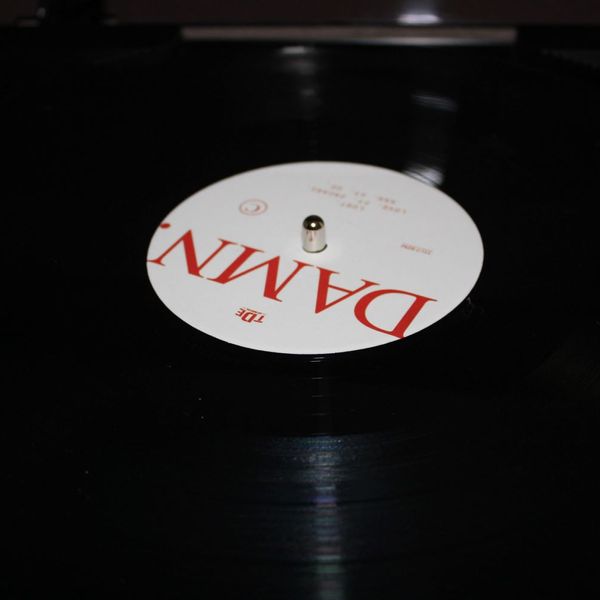
Our 10 favourite albums of 2017

Statsioxide: our first 250 reviews in numbers

Our 10 favourite albums of the 2010s


